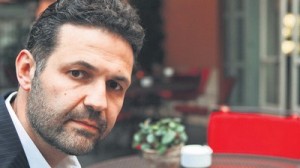The Syrian conflict through a writer’s eyes
 World-renown writer Khaled Hosseini says that Syria is on the verge of losing an entire generation of its children.
World-renown writer Khaled Hosseini says that Syria is on the verge of losing an entire generation of its children.
Writing in the New York Times, the best-selling author of ‘The Kite Runner’ and ‘A Thousand Splendid Suns’, said: “at some point this year, Syria will overtake my native country, Afghanistan, as the world’s largest refugee-producing state”.
“There are now 2.5 million refugees from Syria, 1.2 million of them children. Two-thirds of Syrian refugee children, and nearly three million children inside the country, are out of school,” he said.
“They face a broken future. Syria is on the verge of losing a generation. This is perhaps the most dooming consequence of this terrible war.”
Hosseini, a good-will ambassador for the United Nations High Commissioner for Refugees, described the harrowing experience of meeting several children who had been through terrible times; seeing loved ones killed in front of them, losing their homes and fleeing their neighbourhoods.
“Something about the boy was not right,” he wrote.
“He seemed disoriented, detached from his surroundings. He barely spoke, and when he did, it was in flat monosyllables, his eyes unfocused and downcast, as if too heavy to roll up from the weight of all they had seen. He was the picture of quiet devastation, of a childhood forever splintered.”
Hosseini was describing a 14-year-old Syrian refugee in northern Iraq. He had fled with his family from his home in Aleppo. Before the war he lived a modest but happy middle-class life. But more recently Aleppo has been smashed by falling bombs. His father lost his job and his school closed. He lost two full years of schooling before the family’s eventual escape.
“In the upstairs office, the boy’s father sat across a table from me. A supple, boyish-looking 36-year-old, he recounted, with admirable calm, the story of his family’s harrowing escape, two weeks earlier, from their hometown, Aleppo, and their subsequent trip across the Turkish border and into the Kurdistan region of Iraq,” he wrote.
With no electricity, no telephone service and no food, his father sold the family’s belongings, down to the last piece of furniture. When the money ran out, he borrowed flour from neighbors for his wife to make bread – sometimes they didn’t eat for three days.
Somehow the explosions missed the building where the family lived but the family’s luck finally ran out when a bomb struck their five-story building. The top floor was demolished and an old man and three children were killed and many more were wounded. That was when the family decided to flee and come to Erbil to stay with his brother, who worked at a hotel.
“I found myself hoping he would not tell me this, but he did, Hosseini wrote. ‘Our kids have seen everything. People torn into 100 pieces. The meat of humans torn apart in front of us — flesh and blood’.”
“I stole a look at his boy, and caught a darkness flitting across his face,” he wrote.
“I am a father of two children. I cannot imagine what it would do to them, to see such grisly things. Yet that is happening every day in Syria. A whole generation of children, witness to the unfolding catastrophe, is unable to attend school, their lives shaped by violence, grief and displacement.”













